We are excited to announce a new publication!
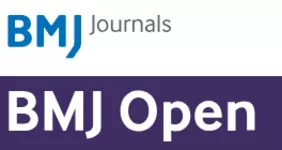
Our research project "KontextSucht" of the rehapro funding line, which we are conducting in collaboration with the German Pension Insurance Mitteldeutschland, the German Pension Insurance Bund, as well as two clinics (Barbarossa-Klinik Kelbra & MEDIAN Klinik Römhild), presents the study protocol for the accompanying research by the Technical University of Munich.
The project focuses on parents with substance use disorders, both with and without accompanying children, in inpatient rehabilitation. An intervention (KSI) is being developed, tested, and evaluated to address the family-specific challenges faced by these parents in inpatient rehabilitation. The aim is to expand the parents' range of actions through this offering.
The results publications will follow soon.
Feel free to take a look! You can find the OpenAccess publication of the study protocol on BMJ open here: lnkd.in/d4XtHePj
Chair of Social Determinants of Health
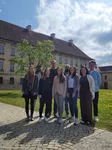
This week, we had an inspiring three-day retreat in Raitenhaslach, which was full of knowledge exchange, team building and collaborative evenings. In a relaxed yet productive atmosphere, we not only presented exciting results from our projects but also engaged in intense discussions to develop new ideas and tackle the challenges of our department. Apart from expanding our knowledge, this retreat also strengthened our team culture. We are already looking forward to integrating the new insights into our daily work and continuing to be successful together.
More visibility for research: Open Access at the Technical University of Munich (TUM)

From 2024, TUM will offer its researchers new opportunities to publish their research results in Open Access. For the authors (m/f/d) this means:
Open Access publishing without personal costs
Free advice from the University Library's Open-Access-team
The details:
As mentioned, the publication fees are covered by TUM. The university administration, university library and School have jointly created the financial basis to conclude comprehensive publish-&-read-agreements with scientific publishers and professional societies. This ensures that TUM members have free access to scientific information and that most of their publications can appear in Open Access. This is an important step on the road to open-access-transformation in the academic publishing sector. The declared aim of the university management is to maximize the rate of open access publications at TUM by providing the best possible support to researchers.
The options:
1. Agreements have come into force with following publishers and specialist societies, among others:
Elsevier, including Cell Press and The Lancet
Springer Nature Group Nature, including the entire Nature-portfolio
Institute of Electrical and Electronics Engineers (IEEE)
ASME (The American Society of Mechanical Engineers)
KOALA Mathematics and Computer Science
Open Library Economics
2. In addition, TUM.University Press, the university publishing house of TUM, offers you a university-owned alternative for book publications and the publication of Diamond Open Access Journals.
The read access:
As the Read in Publish & Read already reveals, the journal holdings have also benefited from these contracts: TUM members can now read around 150,000 journals online.
The Open Access Support is there to help and advise you: https://www.ub.tum.de/kontakt/open-access
https://www.ub.tum.de/aktuelles/publish-read-open-access-tum
Working group for promotion of young talent of the “Deutsche Gesellschaft für Medizinische Soziologie” (DGMS)
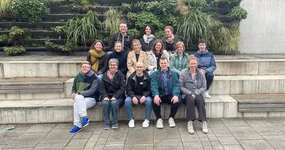
In mid-March, our two colleagues Julia Roick and Laura Hoffmann, in their role as spokespersons for working group for promotion of young talent of the “Deutsche Gesellschaft für Medizinische Soziologie” (DGMS), traveled to the nationwide doctoral colloquium at Jade University in Oldenburg. There, doctoral candidates presented their dissertation topics and gave each other advice on the everyday challenges in the doctoral process.
Many thanks once again to Professor Frauke Koppelin and Professor Lena Ansmann for the great organization and the valuable exchange on site.
Impressions of the day can also be found here: https://newsroom.jade-hs.de/magazin/impulse-fuer-die-promotion
Innovative research meets lively exchange - Rehab Colloquium 2024
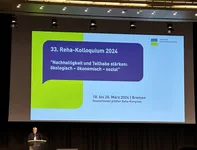
We took part in the Rehab Colloquium in Bremen with our project "KontextSucht" and "PE³PP" from the RV Fit series. The meeting of research and technical expertise opened up exciting perspectives for strengthening participation and social justice.
Our participation was a valuable contribution to the discussion on how we can promote sustainability in the healthcare system and at the same time meet the social challenges of our time. The feedback and suggestions we received for both projects are an important step towards adapting our research even more closely to the needs of society.
A special thank you to everyone who wants to shape the future of healthcare with us. Together, we are developing solutions that will last beyond today and enable real participation.
On February the 15th was International Childhood Cancer Day
Of the approximately 500,000 people who develop cancer in Germany every year, around 2,200 are children and adolescents.
Most common children and teenagers are diagnosed with leukemia (blood cancer), tumors of the brain and the spinal cord, and lymph node cancer.
Leukemia (blood cancer), tumors of the brain and spinal cord and lymph node cancer are most frequently diagnosed in children and adolescents.
Do you know what the golden ribbon is about? The “Goldene Schleife” is a worldwide symbol of solidarity with affected children. It signals personal support, gives courage and inspires hope, that all children and adolescents can beat cancer in the future. It also symbolizes, how precious all help is.
The “kinderonkologische Netzwerk Bayern” (KIONET) has set itself the task of improving the care and chances of recovery for children and adolescents with cancer.
You can find out who is behind KIONET and what goals it pursues in the information series: “KIONET – gemeinsam stark!”
Joint Annual Meeting of DGSMP, DGPH, DGEPI, GMDS und DGMS in Dresden 2024

Under the motto “Health – thinking, researching, acting together“, this year’s annual conference will take place in Dresden from September 8 - 13, 2024. The congress starts with the GMDS conference part from September 8 to 11, followed by the conference part of all other specialist societies.
Abstract submission for the conference is possible from now until March 31,2024 on the congress homepage (https://lnkd.in/e-Df7b8j).
Call for Abstracts “Young Perspectives”
There will also be a session for young scientists at the annual conference, which offers the opportunity to present your own current research work independently of the topic (digital poster with a short 5-minute presentation). This is intended to strengthen the exchange between young researchers. You are cordially invited to submit you contributions and indicate the desired format when submitting them.
Digitalization in healthcare: an immersive perspective
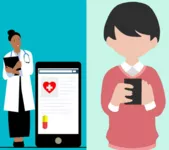
Digitalization is changing the healthcare landscape in profound ways. Scientific publications describe factors such as digital health literacy, internet connectivity and access to digital health services as social determinants of health. This approach draws attention to the complex impact of health technology developments of equal health opportunities.
It is without doubt that digital technologies have the potential to improve healthcare by promoting patient participation and contributing to better health outcomes. However, it is important to be sensitive to the risk that the digital divide can further reinforce existing health inequalities.
Harnessing digital benefits without exacerbating social inequalities is a key challenge. What could effective strategies for an inclusive digital health landscape look like?
The answers to these questions have the potential not only to change the way we view health and technology, but also to significantly influence practice in our healthcare systems. As a department, we are committed to intensively deal with the impact of digitalization on healthcare and are actively researching for solutions to improve equal opportunities in this important area.
TUM School of Medicine and Health (MH)
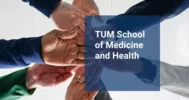
On October 1st, 2023, the TUM School of Medicine and Health (MH) was founded at the Technical University Munich.
This consists of the former Faculties of Medicine (and the “Klinikum rechts der Isar”) and the former Faculty of Sports and Health Sciences.
Three new departments were established as part of the merger: The Department of Clinical Medicine, the Department of Preclinical Medicine and the Department of Health and Sport Sciences.
We are very excited about the new opportunities and interdisciplinary cooperations that this will promote!
About the goals:
The TUM School of Medicine and Health contributes through scientific research and teaching to:
- The definition of formative influencing factors for sustainable health and quality of life
- Maintaining physical and mental health at all ages through evidence-based concepts
- Decrypting fundamental disease mechanisms
- Improving the early and individual diagnosis of diseases with the aim of prevention
- Using new technologies for research, prevent, and treat diseases
- Personalized prevention of diseases and their effects
- Development and implementation of innovative, preventive and curative interventions
As the TUM School of Medicine and Health has just been founded, our joint homepage is still under construction: https://www.med.tum.de/de
Further information can be found on the websites of the old Faculties of Medicine, and Sports- and Health Sciences, which can be reached via the following links:
https://lnkd.in/ds9dvusb https://lnkd.in/dQu9-jAY
World AIDS Day

Since 1988, “WorldAidsDay” has been taken place annually on December 1st worldwide. It is a day that not only emphasizes the rights of HIV-positive individuals, but also calls for a respectful coexistence without prejudice and exclusion. This day also serves as a remembrance for those who have lost their lives in the fight against the consequences of HIV and AIDS.
With approximately 38 million people living with HIV worldwide, the challenge remains to not only ensure access to life-saving medication, but also to overcome discrimination and stigmatization.
Despite advancements in treatment, individuals affected by HIV can still face prejudice and not all of them have access to the medication that can save their lives.
Find more information here: https://lnkd.in/dgJXbb2
Valuable insights from focus groups of our project PE3PP

Last week, was an important step for our project PE3PP. We, Jan Gehrmann, Jana C. Dehner, Prof. Dr. Matthias Richter and Johannes Stephan, had the opportunity to collect data from focus groups with preventive participants of the intervention “RV Fit Psychische Gesundheit” at the idyllic locations of ´Median Klinik Bad Gottleuba´ and ´SRH Medinet Burgenlandklinik´.
Those focus groups are an essential part of our efforts to enhance psychosocial health at workspaces through innovative app-based approaches. The feedback and insights from these groups are enlightening and confirm the relevance of our work.
We extend our warmest thank you to our teams at both clinics for their marvelous support and hospitality. These experiences and new findings are invaluable for our project.
We are very excited about the analysis of the collected data and how “RV Fit Psychische Gesundheit” can contribute to improving mental health.
More information about the project PE³PP: https://lnkd.in/ethsbBFd
Find more about „RV Fit Psychische Gesundheit“ here: https://lnkd.in/e4GUXcAg
Immerse yourself in the world of practical research
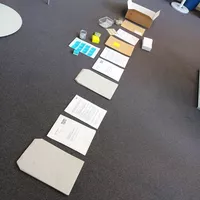
Today, we are opening the door to the practical aspects of our research work at the chair. For the project “KontextSucht”, which deals with addicted parents and their children in inpatient rehabilitation, questionnaires have been packaged, sealed and sent on their journey. This behind-the-scenes look shows how we collect data to gain new insights. We are already looking forward to the returns!
Are you curious, what our project “KontextSucht” is about? Here, we present you a more detailed overview: https://lnkd.in/e_TyvmWp
"I am particularly looking forward to the freedom in teaching" - Interview with Prof. Dr. Matthias Richter, head of the Chair of Social Determinants of Health

On March 1, 2022, Prof. Dr. Matthias Richter accepted the call of TUM to the new Chair of Social Determinants of Health. Previously, he held the Chair of Medical Sociology and was Director of the Institute of the same name at the Medical Faculty of Martin Luther University (MLU) Halle-Wittenberg. [read more]